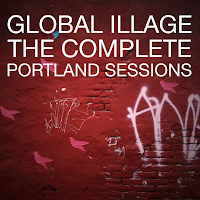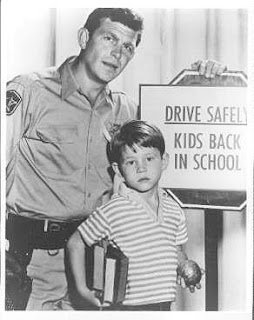Barry and Malcolm #2: Early Struggles with Identity
 |
| Malcolm Little, around 8 |
The second set of observations while reading, in parallel, both The Autobiography of Malcolm X and Dreams from My Father. Preliminary research for my next novel.
Honestly, in reading the autobiographies of two of America's most defining cultural figures, you find a lot of similarities in their early lives. It's kind of stunning. However, one of the significant differences between how Barack Obama and Malcolm X grew up is that from a young age Malcolm's parents made him highly aware of his special skin tone, while little Barry's family seems to have actively sought to minimize any concern about pigmentation when he was young. Obama, in fact, had to figure things out on his own -- leastways, as he tells the story. Both situations are logical as far as they are described by these two.
Early in his autobiography, Malcolm X notes that his parents seemed to treat him in opposite ways because his complexion was so much lighter than his siblings'. He felt that his father always favored him, proof being
that he was the only child who went with his father to the Marcus Garvey-founded United Negro Improvement Association (UNIA) meetings he organized around the state of Michigan. Malcolm says he often rode along up until age six (around the time his father was murdered).
I get the lean towards thinking it was his light skin tone and reddish tinted hair, but I also wonder if young Malcolm Little was just obviously more focused and intelligent than the other kids in the family. There's no doubt he was a special person early on in his life.
Louise Little on the other hand picked on her son constantly and was the parent who punished him. Malcom makes it sound like she was exceedingly hard on him. He indicates that her ire came from the same reason he was revered by his father -- his skin color (which he terms "redbone"). Louise, who could have "passed" as white, would often say to Malcolm when she wanted to send him outside to play: "Let the sun shine on you so you can get some color." She may well have been trying to protect her son from falling prey to a color superiority attitude with respect to his siblings. But it wouldn't surprise me if she too was aware of the need to parent him differently because of his precociousness and pugnacious spirit.
Little Barack had a much different situation as a boy. It was nearly 40 years after Malcolm Little suffered through a childhood in the oddly racist state of Michigan during the Depression. While Obama knew he was half-Kenyan, his mother and grandparents certainly made sure he understood that the color of his skin had nothing to do with the content of who he was as a person. They didn't act like he wasn't brown-skinned, but they also didn't make much of an effort to explain to him what prejudice and discrimination were all about in the big old world, or that all this negativity, hostility, and senseless stupidity was just sitting out there waiting for him to become aware of it. Partly this was because they were in Hawaii -- only two years old as a state, with a long history of integrating numerous cultures. But partly, too, it was the times. I myself am just a little older than Obama. I remember that era. Liberal people everywhere believed to the depths of their being that racism could be defeated if we just didn't accept it and we pushed our institutions to eradicate the artificial boundaries of discrimination. Obama quotes Ann, his mom, as saying that she had a "...faith that rational, thoughtful people could shape their own destiny."
 |
| Barry at about 8 |
In the end, Obama, it seems, slowly figured things out on his own. The big turning point for him was finding an article in Life magazine about black people paying for chemical skin lightening treatments. An accompanying photo showed a man's hands with:
"a strange, unnatural pallor, as if blood had been drawn from the flesh. ... the man's crinkly hair, his heavy lips and broad, fleshy nose, all had this same uneven, ghostly hue."
That's what he writes about in Dreams from My Father. It should be noted that no one has been able to find copies of a Life magazine containing this article. But it isn't surprising that Obama would have a hard time remembering specifics back four decades. Indeed, a quick Google search on "skin bleaching, Life magazine" will kick up a few dozen images from magazine ads for chemical skin lightening from the early 1960s -- especially from Jet and Ebony magazines! So, it's very likely he saw something that weirded him out about people trying to control their skin color.
But regardless of the accuracy of his memory, what's interesting about Obama's situation as a growing boy is that he does not bring issues he is learning about race up to the adults he knows love him so much. Some people might think he was ashamed or confused about how people with his pigmentation seem to be treated in the world, but it really feels more like he had a sixth sense about the need to protect his mom and his grandparents from having to deal with this weird reality he saw before him. Even as a pre-teener entering prep school in Hawaii, he did not talk to anyone about how odd and troubling it was for him to realize that his "dark" skin matters to other people and that he isn't sure what it all means. I know and understand the need to protect one's family, to actively make sure they don't feel like you have a problem with your situation. I know, too, how unconscious that need is and how seamless the sensibility becomes, especially when you are a little kid.
Was he protecting them from having to confront the fact that the ideals they believed in -- that no one should be judged by the color of their skin -- were only ideals, and that the reality was (and still is) that people are clearly judged, that the way that makes you feel as a dark-skinned person is pretty crappy?
Or is it simpler than that? Is it just one of a dozen ways a young person rolls with life's punches, knowing that to let one's family in about something as essential as appearance is an opening up about vulnerability in general and asking parents to see the secret life that is your private individual reality? To open up about so many things is to give up the small kernel of self you are becoming aware of. Nothing is simple for any of us once we have personal identity going on in our young explosive lives.
Malcolm handles the puzzle of identity so much differently than Barry. He seems to have been born with a chip on both of his shoulders and an unwillingness to suffer fools ... period. He does actually play lots of social games in the beginning, both as a young (and somewhat troubled) student in the Lansing area, and as a teenager in Boston once he moves there to live with his sister -- kowtowing to people he works for, giving them the old "yassuh" routine, and the million dollar smile. He gets very good at these games, actually. People are drawn to him because of this talent -- both in Michigan and then again in Boston.
Such a different world for Malcolm! His dad died when he was six just as the Depression was hitting. His mother and five siblings had a reputation for being the poorest of the poor and, literally, for eating fried grass because they didn't have any food.
The family was slowly destroyed by social services once Earl was gone. Malcolm's mom was descending into psychological breakdown probably before she lost her husband. Things got much worse once she found herself alone. How much was true chemical imbalance and how much the stress and shock of life is hard to know. She was struggling as a woman without a man or extended family and no education in an era of deprivation and sacrifice. Social service and welfare personnel dogged the Little family monthly, and made the kids aware of the fact that their mother was too messed up to take care of them. The tension and doubt for the family must have been almost unbearable.
Malcolm says he developed a sense of bitterness and brittle anger towards authority figures due the way his mother and his family were treated back then. These authority figures were almost all "white," of course. He writes:
"Hence I have no mercy or compassion in me for a society that will crush people, and then penalize them for not being able to stand up under the weight."
He was about ten at this stage of his life. That's a pretty important age for each of us. It was important for Obama, too. But in a much different way. At ten, he was living in Indonesia with his mom and step-father, Lolo, and his half-sister, Maya. His mother's second marriage was getting rocky. She and her Indonesian husband were still very young and going through major changes. The whole world was changing back in the late 1960s and early 1970s. My own parents were struggling in their marriage. So were half the kids' in America! Probably for a host of reasons, Barack was finally sent home to Hawaii to attend the prestigious Punahou Academy and live with his grandparents. There's no question he had a strong, close relationship with both of them. But there's also no question his grandparents had issues and problems of their own.
 |
| Barack, Jr. with Barack, Sr. |
Right at this juncture of his life, transitioning back to the U.S. and modern Western life, his father comes to visit just before the Christmas holidays -- the only time in Barry's young life he will get to know his father. It is a strained time. His mother and sister are there as well from Indonesia. Young Barry doesn't know how to relate to his father.
The whole passage in the book describes a muffled, broken form of anger and hostility coupled with what I think is probably a pre-teen young man protecting himself from the pain and vulnerability he rightfully should be feeling toward both of his parents. It's clear that Barack Obama had a loving childhood in many ways, and certainly he didn't have to deal with the privation that Malcolm Little did, but in his own way, Obama too lost both of his parents at a young age. That sense of abandonment gets mixed in with everything else. I lost my parents a bit later in life than those two -- in my teens -- but I know how that feeling goes. It's not easy to manage or even acknowledge to yourself.
Throughout this chapter of the book, Obama makes it obvious that he doesn't remember very much of how he and his father interacted during that month. He knows he was disappointed in the supposedly great and amazing man everyone had told him about all his life. But it's still an odd thing that he would have such a powerful memory lapse because so many other elements of his early life are recalled in rich and multi-hued detail.
What is most memorable to him is the night before his father leaves Hawaii. As Barack, Sr. packs up to leave, he finds a record that he meant to play for his son. He puts it on the phonograph and begins to dance. Young Barry watches, both transfixed and, I think, puzzled. Obama writes:
"As I follow my father into the sound, he lets out a quick shout, bright and high, a shout that leaves much behind and reaches out for more, a shout that cries for laughter."
They never see each other after the next day.
Next: Teen years...



Comments
Post a Comment